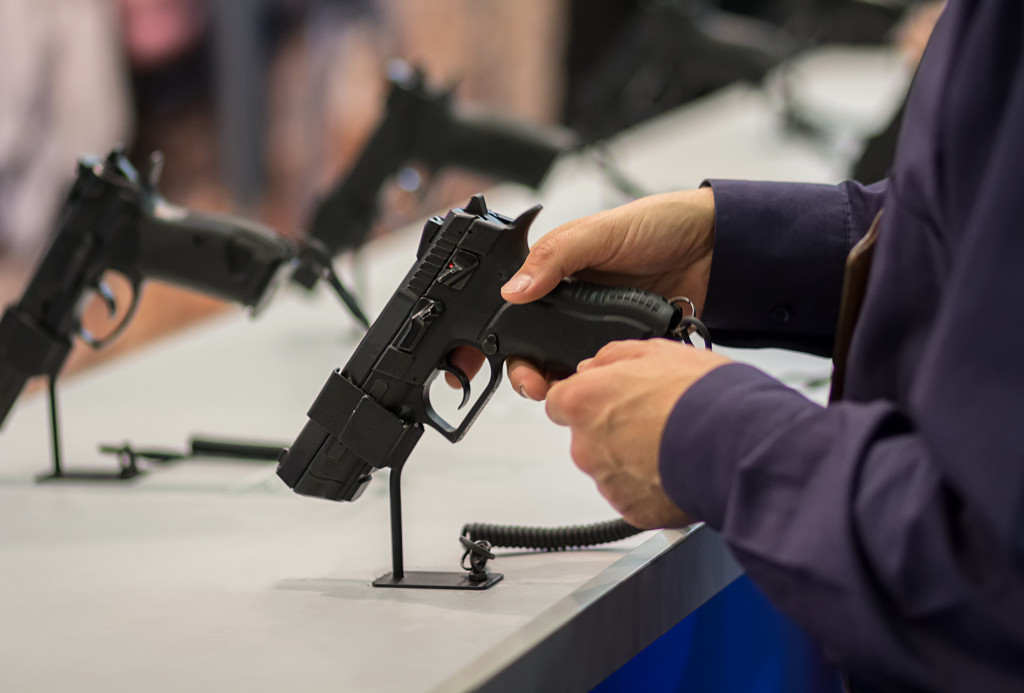Opening a gun store can be a very profitable business venture in America today. The National Shooting Sports Foundation (NSSF) reports that the total number of firearms owned by American civilians in 2022 was estimated to be between 393 million and 439 million. With an ever-increasing demand for guns, setting up your gun store is an excellent way of tapping into this lucrative market.
However, running a successful gun business requires more than having the proper inventory. There will be many legal and logistical considerations and a plan for marketing your business. Here is what you need to consider when setting up your gun store.
Store Location
When it comes to setting up your gun store, finding the right location is critical. You’ll want to be in a state that allows firearms dealers and in a city or town with a population interested in firearms. The ideal location would also have a low crime rate and be located near other businesses that are complementary to your own, such as hunting stores, shooting ranges, and pawn shops.
The location of your store is vital for two reasons. First, it’s essential from a legal standpoint. You’ll need to ensure that you’re in a state that allows firearms dealers and that your city or town has regulations about gun stores. Second, the location of your store will play a role in its success or failure. If you’re not in the right place, you may not get enough foot traffic to make your business viable.
It will be essential to research the local regulations and neighborhood demographics before deciding on a store location.
Licensing and Permits
When setting up your gun store, one of the most important things you’ll need to consider is licensing and permits. You must understand all the rules and regulations in your state regarding owning and selling firearms.
In general, a federal firearms license (FFL) will be required in most states to sell, lease, or transfer firearms from your store. You’ll also need a permit from the Bureau of Alcohol, Tobacco, Firearms, and Explosives (ATF). Depending on your particular state or locality, other permits or licenses may be required.
Insurance will also be necessary to protect your business and customers. You’ll need the right insurance coverage for product liability, workers’ compensation, property damage, legal fees, and more. You can work with a reliable firearms insurance company to help you get all the things you need.
Finally, you may need a state-level license if your state requires one. Check with your local government to understand what licenses and permits are required in your area before opening your store.
Inventory

Your gun store’s inventory is essential to success or failure. It’s vital to stock various firearms in different price ranges to meet all customers’ needs. You should also have a selection of ammunition and accessories for the types of guns you sell.
It will be essential to keep up with industry trends and changes when selecting items for your store. You may also want to consider a specialty, such as handguns or hunting rifles, so your store can stand out from other stores in the area.
You’ll also need to decide if you will sell used guns and accessories. Many gun stores offer both new and used firearms because they appeal to different types of customers.
The proper inventory will help attract more customers to your store and keep them returning.
Marketing Your Business
Once you have the legal and logistical considerations taken care of, it’s time to start thinking about how you will market your business. The key is to create an effective marketing plan that will target the right population with the right message.
You can market your gun store in many ways, such as through print and digital advertising, social media campaigns, email campaigns, and more. You can also consider partnering with other businesses in the firearms industry to cross-promote each other’s services.
Finally, you may want to consider joining local organizations like the National Rifle Association (NRA) or sponsoring a shooting competition or event. These activities can help create an image of professionalism and demonstrate that you are serious about serving the firearms community.
Security Measures
Security should be a significant consideration when setting up a gun store. You’ll need to ensure that your store is safe and secure for customers, employees, and passersby.
You may want to consider installing security cameras to monitor activity in the store and install locks on any areas where firearms are stored or displayed.
Additionally, you’ll need to ensure your staff is adequately trained on proper firearm safety and handling techniques to help customers safely handle any guns they take out of inventory. Finally, it’s essential to have an emergency plan in an active shooter situation or other emergencies.
Final Thoughts
Setting up a gun store is not an easy task. It requires careful planning, foresight, and complying with all local, state, and federal regulations.
However, by following the steps outlined above and creating an effective marketing plan, you can make a successful business selling firearms to customers in your area.




